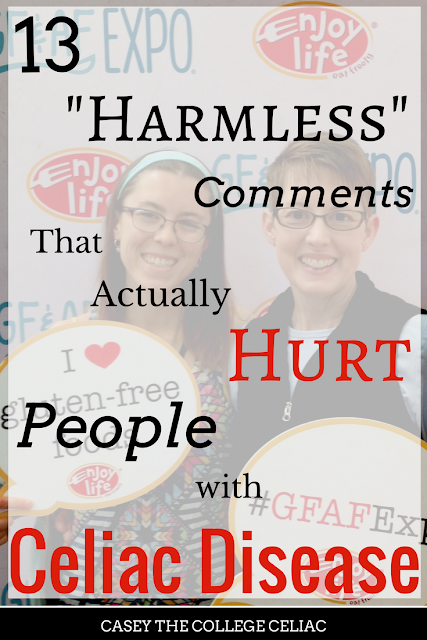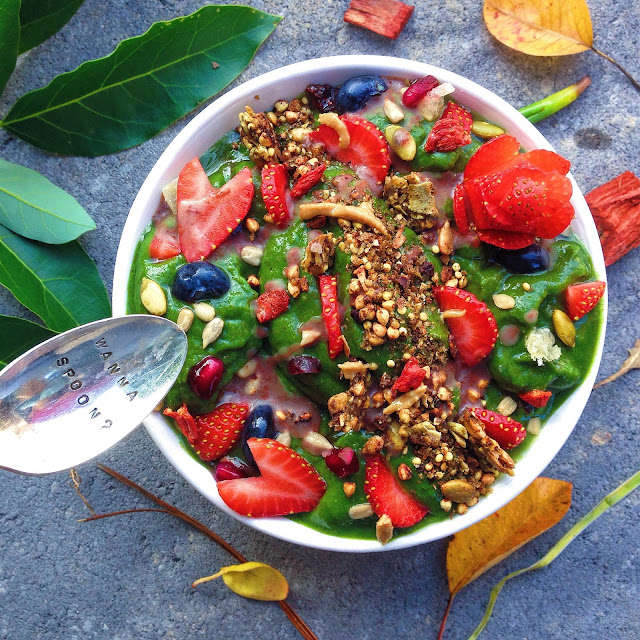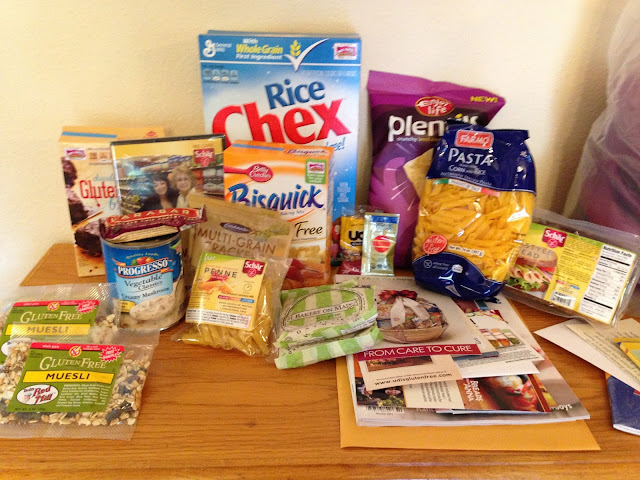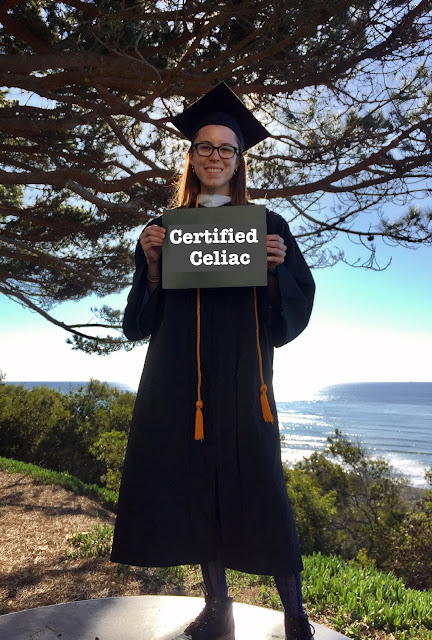New blog post!
Living with celiac disease can be hard. Hearing people make “harmless” comments about celiac disease or the gluten free diet – “harmless” comments that actually hurt people with celiac disease, like yourself or your loved ones – can be even harder.
That’s why, after
I read this great post about 19 seemingly harmless comments that actually hurt people with fibromyalgia, I knew I wanted to write a similar post about celiac disease. I have two goals with this post. First, I hope that, if you have celiac disease and are struggling with family members or friends who don’t understand and make (accidentally) hurtful comments like these, reading this post will make you feel less alone. (After all, all 13 of these comments are based on things I’ve actually be told or have heard about from others with celiac disease!) Second, I hope this post raises awareness of just how hurtful these kind of comments can be for people with celiac disease – and that these comments stop being said!
Whether you have celiac disease, know someone who does or just want to be more aware of this complex chronic illness, keep reading to discover 13 comments that drive people with celiac disease a little crazy.
1. “My aunt, uncle, best friend, wedding caterer (or any other random friend or family relation) had celiac disease years ago and they can eat gluten now.”
Two points: first,
celiac disease is a chronic illness and cannot be outgrown (unlike, for instance, food allergies) and there is no “cure” except for a strict, gluten free diet. Second? I am not your uncle, best friend, wedding caterer, etc. and his or her medical history likely does not have any direct correlation to mine. I appreciate you caring about me enough to try to keep me informed about others’ alleged “cures” from celiac disease, but supporting my need for a gluten free diet would be even more helpful.
2. “Gluten free food is so gross.”
True, gluten free food will rarely (if ever) taste like its “normal”, wheat-filled counterparts. However, we’re lucky enough to live at a time where
there are plenty of delicious gluten free brands to enjoy, ranging from fluffy gluten free bread to crunchy pretzels and granola bars. Not only that, but people with celiac disease don’t have a choice about eating gluten free…so, please, don’t make our diet sound like an unavoidable death sentence to our taste buds.
3. “No wonder you’re so skinny.” OR “I thought everyone with celiac disease or who eat gluten free was skinny.”
As I’ve mentioned before, people often assume that everyone with celiac disease is skinny. Similarly, people often equate the gluten free diet with a weight loss diet. Both assumptions are incorrect – and, either way, commenting on someone’s weight is rarely a good idea.
4. “Why do you have to be so picky about your food?”
I get it; sometimes, it’s annoying when people have dietary limitations, especially if you’re trying to organize a family get-together or a restaurant outing for a large group. However, celiac disease isn’t a choice and neither is our strict gluten free diet, so please don’t imply (even unintentionally) that it is.
5. “I went gluten free for three weeks, so I totally understand how hard it is.”
Recognizing how hard it can be for people to live with celiac disease? Awesome. Trying to empathize with a celiac’s daily struggles? Always appreciated! It’s also important to realize, though, that going on a short-term gluten free diet is very different than having to eat a strict gluten free diet free of cross contamination for the rest of your life, and to avoid blanketly equating those two experiences.
6. “I could never be gluten free!”
On the other hand, painting the gluten free diet as some nearly-impossible challenge isn’t overly helpful either. Yes, eating a gluten free diet (for celiac disease, gluten intolerance or any other medical condition) can be challenging. However, there are
hundreds of thousands of gluten free people who constantly prove just how possible – and delicious – eating gluten free can be.
7. “So are you going to force your husband/wife go gluten free too?”
If this comment is originating from a genuine interest in my love life, that’s one thing. More often, though, comments like this make it sound like being married to someone with celiac disease would be horrible because we force people to ditch bread.
If someone cares about me enough to go gluten free or even just eat gluten outside the house, that’s awesome. Do I try to convert every gluten-eater I meet (whether I’m dating them or not)? No. Personally, I don’t think that a gluten free diet is the best diet for everyone (especially if they don’t have
gluten intolerance, a sensitivity to fodmaps or, obviously, celiac disease). As for dating people who eat gluten, well, my dates either need to eat gluten free or get very used to
brushing their teeth every time they want to kiss me…and no one has complained of those options so far!
As the old saying goes, “Those who care don’t matter, and those who matter don’t care.” I think the latter is definitely true when it comes to loving someone with celiac disease or another chronic illness.
8. “Don’t you miss *insert any gluten-filled food, ranging from Papa John’s pizza to donuts*?”
After over four years of living gluten free, I can honestly say that I’ve found replacements for most of my favorite pre-celiac comfort foods. However, there are definitely days when I’d love to just pick up the phone, order takeout from anywhere that sounds tasty and not have to worry about any of the ingredients in, or cooking process of, my dinner.
So, yes, I do miss those foods…but, most days, I choose to focus on everything I can eat instead. As a result, I’d encourage people to instead ask, “What’s your favorite gluten free food?” or “What’s your favorite gluten free recipe?”
9. “Mary worked really hard on this cake/dinner/other gluten-filled food. It’s rude if you don’t even try it.”
Turning down all gluten-containing (or questionable gluten free) foods may not help us win Miss Congeniality, but health always comes before politeness. If people with celiac disease could eat “just a little” gluten without experiencing major brain fog, digestive distress, intestinal damage and other symptoms, many of us probably would. But celiac disease doesn’t work like that, so we don’t either.
10. “But you used to be able to eat everything just fine!”
11. “That [symptom] doesn’t sound like celiac disease to me.”
Although people often assume that everyone with celiac disease experiences digestive-related symptoms,
symptoms of celiac disease can range from rashes to anxiety or ADHD to unexplained anemia. Some people even have silent celiac disease, meaning that they don’t experience any negative symptoms from eating gluten but damage is still done to their intestines. No matter what symptoms caused someone to be diagnosed with celiac disease, they still have it…and they still need s gluten free diet.
12. “My cousin has celiac disease and she can eat *insert food here* just fine.”
Because everyone with celiac disease is different,
all of our gluten free diets are different to some extent. Some celiacs feel best eating a paleo diet while other celiacs go vegan. Not to mention that different celiacs might be more or less comfortable with different kinds of “gluten free” food. For instance, some celiacs might only feel comfortable eating certified gluten free foods while others will eat most products without gluten or wheat in the ingredients. Just like people who eat gluten don’t love every single gluten-filled food, someone with celiac probably also doesn’t love every gluten free food on the market.
Bottom line? Just because a food is gluten free or is eaten some other person with celiac disease doesn’t mean we will eat it…or want to eat it!
13. “But you look normal.”
Just like fibromyalgia, celiac disease is an invisible illness and you can’t automatically pick someone with celiac disease out in a crowd. “Invisible,” however, doesn’t mean “fake” or “less important.”
As I shared in a previous blog post, there are also many ways that you can “see” our celiac disease, from the questions we ask restaurant chefs to the five million gluten free snacks always hiding in our bags.
So what can you do if you have celiac disease (or know someone who does) and you hear these kind of statements? First of all, don’t take these comments personally. They can be said with misguided love, like when relatives try to explain how their neighbor found a “cure” for celiac disease. They can also simply originate from incorrect societal assumptions or stereotypes, like the celiac disease myths I explained a few weeks ago. Secondly, if you do feel comfortable responding to the comment, try to focus on educating the speaker.
After all, as much progress as celiac disease awareness has made in recent years, there is still room for improvement…and speaking up when “harmless” comments like occur – and/or avoiding making these comments yourself – is another important step in the right direction.
What “harmless” comments about celiac disease, gluten free food or chronic illness drive you a little crazy? How do you respond to these kind of statements? Tell me in the comments!
via Blogger http://ift.tt/2DGWVwy
from WordPress http://ift.tt/2pAnvn9
via
IFTTT








No comments:
Post a Comment